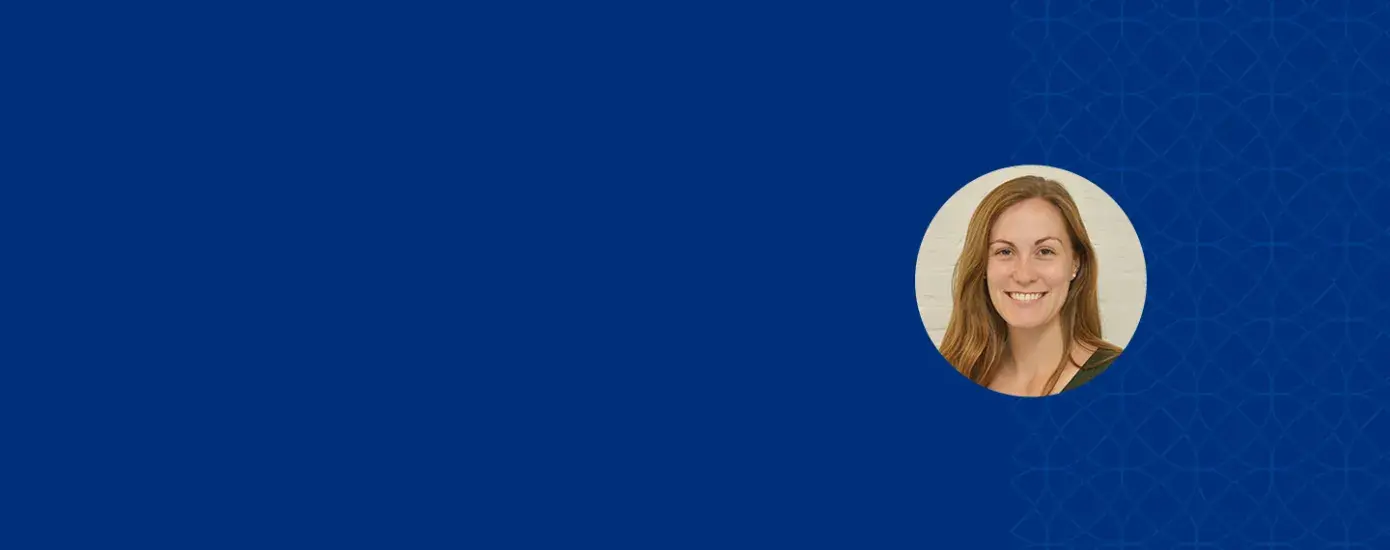
Lauren Scheiper Baron, PhD '18, MS-CSD '11
Tell us a little bit about your current work.
I am a postdoctoral research fellow in the Cognitive Neuroscience Group (CNG) at MGH Institute of Health Professions. The CNG is a collaborative research group that uses behavioral and neuroscience methods to examine the relationships between learning, language ability, and cognitive factors. I am a member of the CNG’s Learning and Development Lab, led by Yael Arbel, which focuses on school-aged children with developmental language disorder, or DLD. In my role, I am involved with every stage of the research process including study design, data collection and management, data analysis, and dissemination. I am currently leading a project that examines how children with DLD use self-directed language to complete executive function tasks.
What was the catalyst for your traveling this career path? What sustains your interest in this work?
As a speech-language pathologist working in the schools, I noticed that children were often labeled as shy, lazy, disorganized, or unmotivated when they were actually struggling with language and executive function difficulties. I shifted my focus to supporting children’s executive function skills, but I wanted to know more about whether these interventions were effective. This led me to pursue research so I could better understand learning and executive function in children with DLD and contribute to evidence-based practice in the field.
Why is subject recruitment / subject participation so important to your research?
DLD is remarkably common - affecting nearly 8% of all children, or about 2 children in every classroom. Surprisingly, less than half of these children will receive a proper diagnosis or the necessary clinical services (Norbury et al., 2006; Tomblin et al., 1997). This is partly because the symptoms of DLD can be “hidden” if not tested directly. A child who struggles with language might talk less, have trouble remembering words or what they read, or they might just sound younger than their peers. There may not be an obvious sign of difficulty, like when a child has trouble producing the “s” sound in words (Zhang & Tomblin, 2000). Because children with DLD are hard to identify, it is relatively understudied compared to other developmental conditions (McGregor, 2020). However, our field is actively striving to raise awareness of DLD among parents and educators. Increased awareness and research participation is critical for better understanding and supporting these children.
What knowledge, skills, and attitudes do you bring from the IHP to this work?
I have been fortunate to receive both my clinical and research degrees from the IHP. Early in my training, I learned about the concept of clinical excellence, which has driven my desire to provide the best possible care to children with language impairments. Whether administering assessments to determine a research participant’s diagnosis or analyzing a dataset to compare performance in different learning conditions, I am striving to improve the clinical experience for speech-language pathologists and their clients.
What advice would you give to other IHP alumni interested in becoming scholar practitioners?
In recent years, there has been a growing interest in closing the research-to-practice gap (Bauer & Kirchner, 2020). As a result, there are more ways to get involved in research than ever before. Clinical practice partnerships can take many forms. My biggest piece of advice is this: Don’t be afraid to start a conversation. Did you enjoy reading a journal article? Email the author to tell them how it relates to your clinical practice. Did you just find a new research lab on Instagram? Send a direct message saying you want to learn more about their work. Most researchers are eager to make connections with clinicians to both support recruitment and have a more immediate impact on the field.
The mission of the Institute is to prepare health professionals and scientists to advance care for a diverse society through leadership in education, clinical practice, research, and community engagement. What is it like to be a double alum and live out this mission while working at the IHP?
I feel very proud to be part of the IHP community. I have had the opportunity to take classes in many departments and work in several research labs at the IHP. Regardless of my role as student or researcher, I have always been treated as a professional. I am so grateful to be learning from and working with people who embody the Institute’s mission and lead by example.
References
Bauer, M. S., & Kirchner, J. (2020). Implementation science: What is it and why should I care? Psychiatry Research, 283, 112376.
McGregor, K. K. (2020). How we fail children with developmental language disorder. Language, Speech, and Hearing Services in Schools, 51(4), 981-992.
Norbury, C. F., Gooch, D., Wray, C., Baird, G., Charman, T., Simonoff, E., ... & Pickles, A. (2016). The impact of nonverbal ability on prevalence and clinical presentation of language disorder: Evidence from a population study. Journal of Child Psychology and Psychiatry, 57(11), 1247-1257.
Tomblin, J. B., Records, N. L., Buckwalter, P., Zhang, X., Smith, E., & O’Brien, M. (1997). Prevalence of specific language impairment in kindergarten children. Journal of Speech, Language, and Hearing Research, 40(6), 1245-1260.
Zhang, X., & Tomblin, J. B. (2000). The association of intervention receipt with speech-language profiles and social-demographic variables. American Journal of Speech-Language Pathology, 9(4), 345-357.
